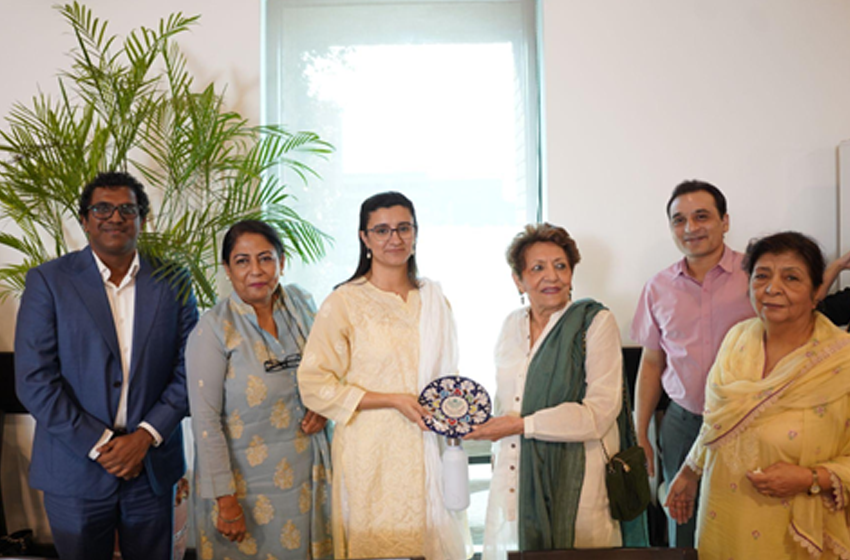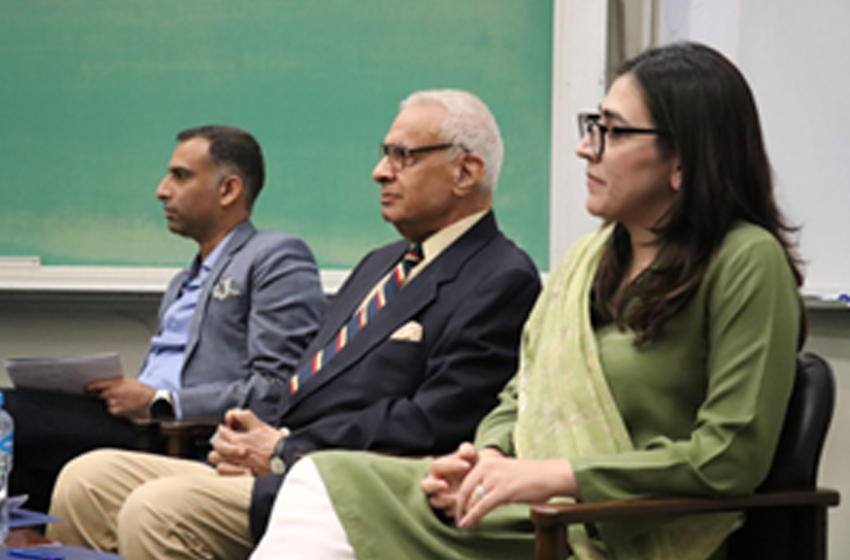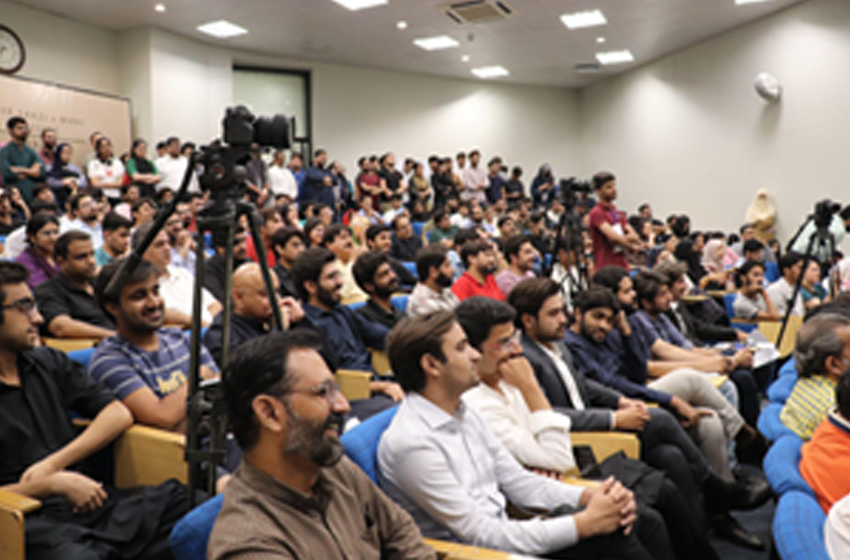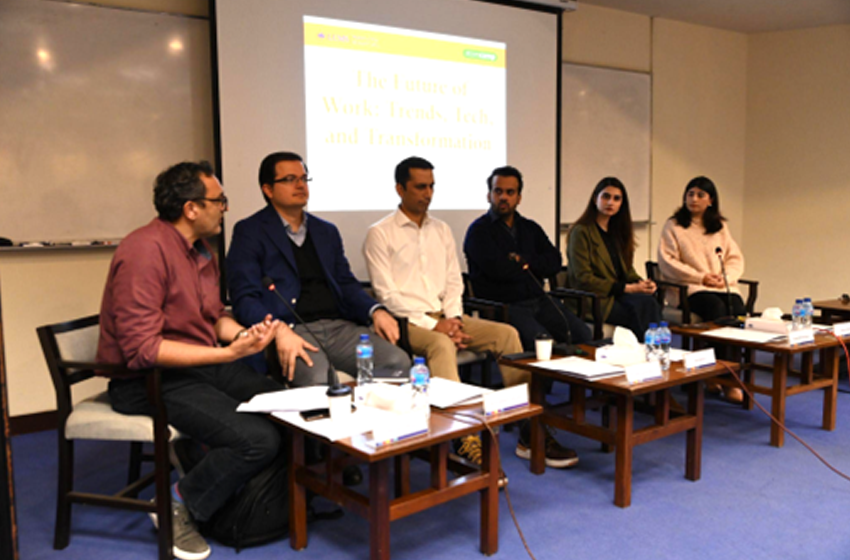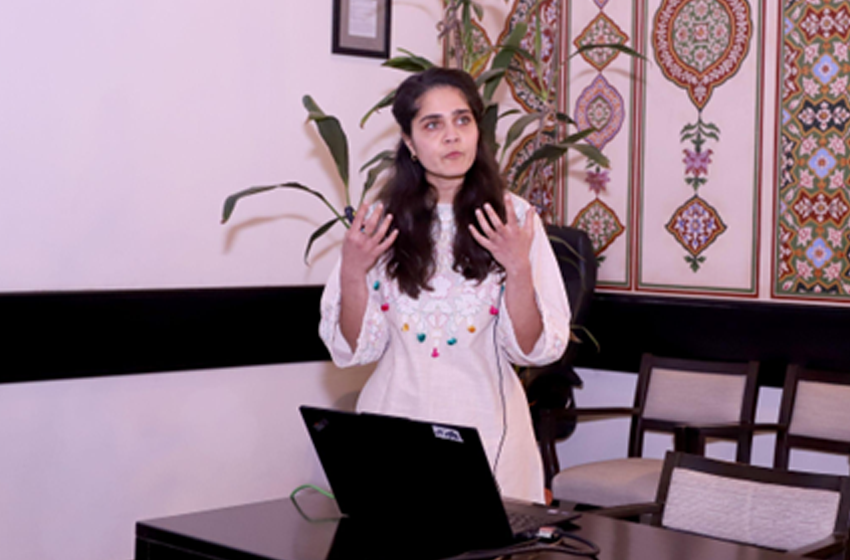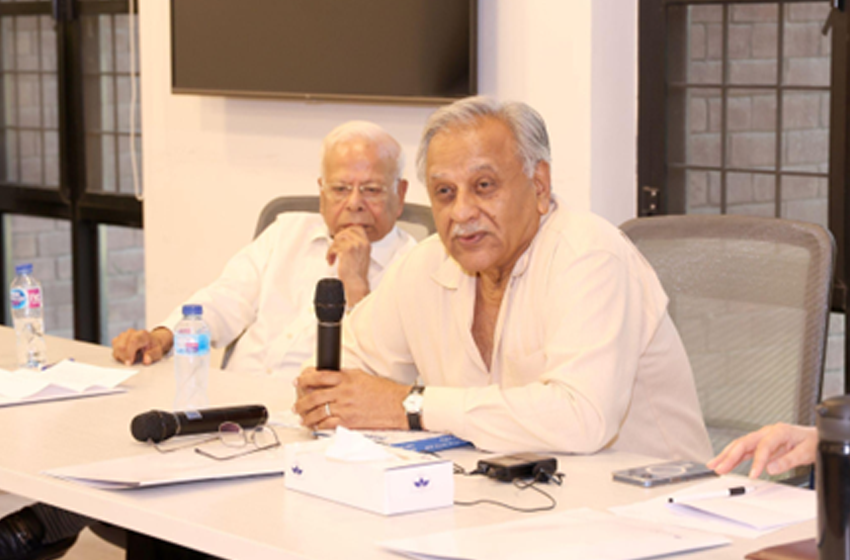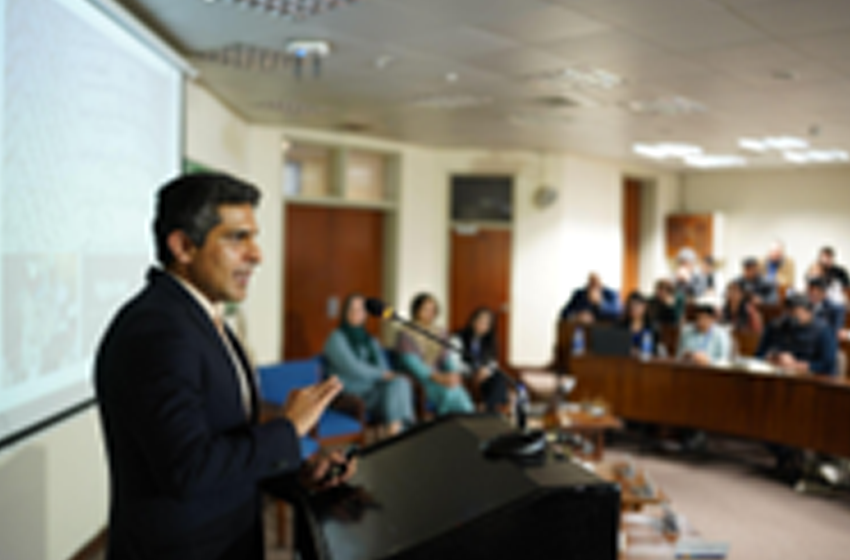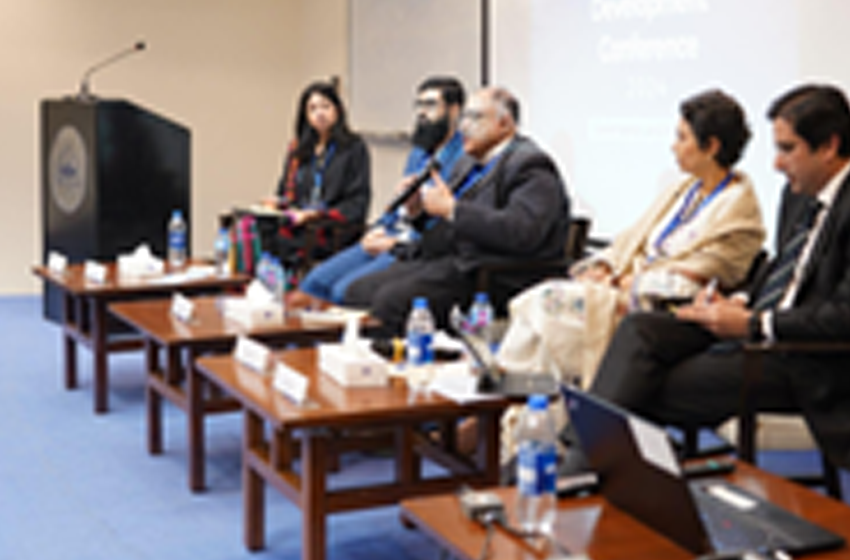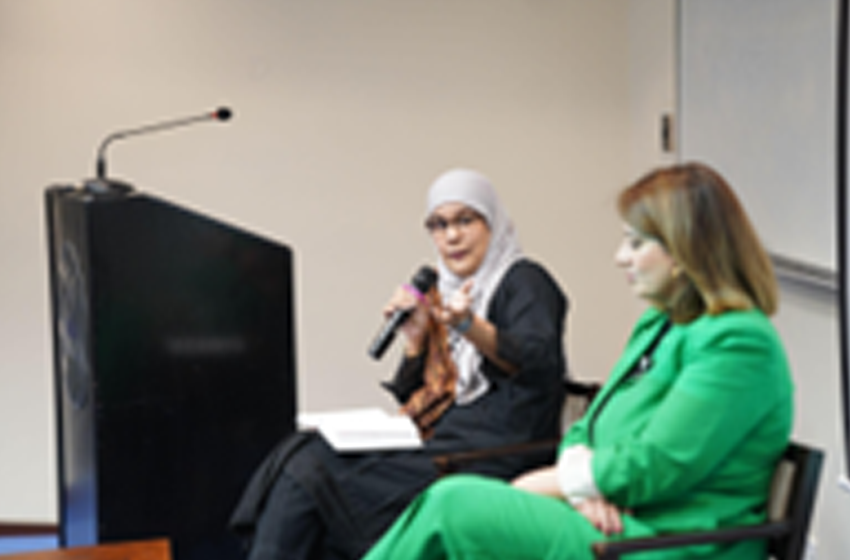The Mahbub ul Haq Research Centre (MHRC) fosters interdisciplinary research, teaching, and scholarship focused on human development, social exclusion, and inequality across South Asia. Under the leadership of Executive Director Farah Said and Director of Research Soufia Siddiqui, MHRC has expanded significantly and now comprises 143 Research Fellows—69 external and 74 residents. Its external fellows are affiliated with leading universities such as Harvard, Yale, Stanford, Columbia, LSE, Sussex, and Georgetown, as well as renowned policy institutions like the Overseas Development Institute and the Austrian Institute for Economic Research.
Research Projects
Events
Panel Discussions
Book Talks
Annual Conference 2024: Pathways to Development
December 16–18, 2024
The third Pathways to Development Conference, held at LUMS, brought together leading academics, researchers, policymakers, and practitioners from Pakistan and around the world to address urgent questions of governance and inclusion. Co-hosted by the MHRC and several research partners, the conference served as a platform for showcasing cutting-edge research and fostering productive dialogue across disciplines and sectors. The event featured keynote addresses by Dr. Lant Pritchett (London School of Economics) and Dr. Mazhar Waseem (University of Manchester), who provided critical insights on the global development challenge and Pakistan’s taxation landscape, respectively. In a powerful plenary session, Justice Syed Mansoor Ali Shah underscored the intrinsic link between climate finance and climate justice, calling for equitable global responses to environmental crises.
Over the three days, the conference convened nineteen expert panelists to explore pressing themes such as land rights, education policy, and development resilience. Presentations by thirty-one researchers covered a wide range of topics, including poverty, digital innovation, climate adaptation, governance, gender, public health, and the macroeconomic challenges facing South Asia. The programme featured speakers from globally renowned institutions, including the University of Oxford, Cambridge University, Princeton University, Harvard University, the World Bank, and the International Monetary Fund, alongside senior government officials and development sector leaders. The conference provided participants with new avenues for collaboration and concrete interventions aimed at advancing inclusive, evidence-based policy.
Webinar: The Patriarchal Political Order
November 4, 2024
Speakers: Dr. Soledad Prillaman (Stanford University) and Sharmeen Azeem (IDEAS). Moderated by Rida Fatima (LUMS).
The webinar focused on key questions regarding the sustainability of women’s political involvement, the importance of collective action, and the systemic changes necessary to achieve gender equality in political participation.
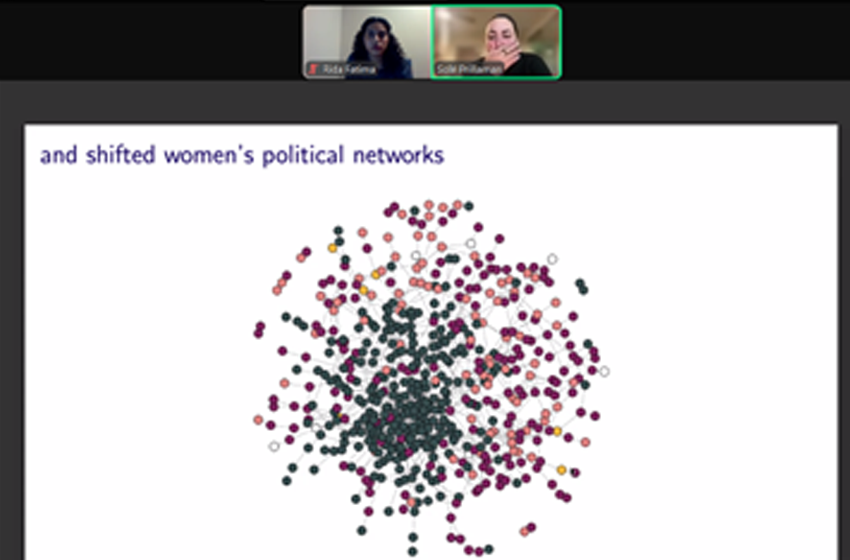
Publications
Selected Journal Articles by Fellows
- Ahmad, H. F., Ali, A., Meeks, R. C., Plutshack, V., Wang, Z., & Younas, J. (2024). Breaking the culture of nonpayment: A qualitative analysis of utility intervention in Pakistan. Utilities Policy, 91, 101850. https://doi.org/10.1016/j.jup.2024.101850
- Ali, F. (2025). Do institutions matter? Taxation and state formation in Pakistan. Canadian Journal of Development Studies/Revue Canadienne D Études Du Développement, 1–23. https://doi.org/10.1080/02255189.2025.2454697
- Afzal, U., d'Adda, G., Fafchamps, Quinn S. and Said, F. (2024) Demand for Commitment in Credit and Saving Contracts: A field experiment, The Economic Journal, 134 (664), 3063-3095.
- Haider, E. A., & Siddiqui, N. A. (2024). Votes for Water: Ethnic Service Delivery and Criminality in Karachi, Pakistan. Studies in Comparative International Development. https://doi.org/10.1007/s12116-024-09424-4.
- Hayat, M. (2024). Good Bureaucrats and God: The Ethical Labor of the Public. Cultural Anthropology, 39(4). https://doi.org/10.14506/ca39.4.06.
- Gulzar, S., & Khan, M. (2024). “Good Politicians”: Experimental Evidence on Motivations for Political Candidacy and Government Performance. Review of Economic Studies. 00(1-26). https://doi.org/10.2139/ssrn.3826067.
- Tamim, T., & Bari, F. (2025). Tracing the footprints of returning international students in Pakistani context: A capability approach analysis. International Journal of Educational Research, 131, 102593–102593. https://doi.org/10.1016/j.ijer.2025.102593
Pakistan Dialogues
MHRC’s blog, Pakistan Dialogues, invites scholars and practitioners to share insights from their work to increase our understanding of national and global challenges, and explore ways to address them. In the past year, the following pieces were notable:
- Bibi, F. (2024, September 30). Insights and lessons from crisis: Bridging educational disparities.
- Arif, R. (2024, November 1). Solar panel uptake: A savior or a recipe for disaster?
- Salim, Z. (2024, November 11). Pakistan's children are not learning: What can we do about it?
- Umar, Y., & Khan, R. (2024, December 20). Tax reforms in Pakistan – Missing the mark, again.
- Shakeel, J. (2025, January 6). Motivating female post-primary education in the Punjab.
- Khan, R., Arif, R., & Umar, Y. (2025, January 31). Pakistan’s battle for clean air: Will our cities ever be breathable again?
Books Published by Fellows
- Maqsood, A., Moffat, C., & Sajjad, F. (2025). Lahore in Motion. UCL Press.
- Nabi, I., & Nasim, A. (2025). Pakistan: How to Live Within Means, Addressing Chronic Fiscal Deficits. Vanguard Books.
- Rajani, S. (2025). Leaving Legacies. Cambridge University Press.
The Centre’s Partners
- UN Development Programme
- Institute of Development Studies
- Centre for Economic Research Pakistan
- Akhuwat Foundation
- International Growth Centre
- Small and Medium Enterprises Development Authority Punjab
- Consortium for Development Policy Research
- Shahid Javed Burki Institute of Public Policy (BIPP)
- Punjab Local Government Academy
Internship Programmes
For two academic cycles, MHRC has engaged students through its internship programmes, recruiting them to support media, logistics, and most recently, research activities. These internships provide students with a meaningful introduction to the world of research and policy, allowing them to apply their academic training in real-world contexts. Interns gain hands-on experience, strengthen their analytical and communication skills, and develop a practical understanding of the research process and key policy challenges.


